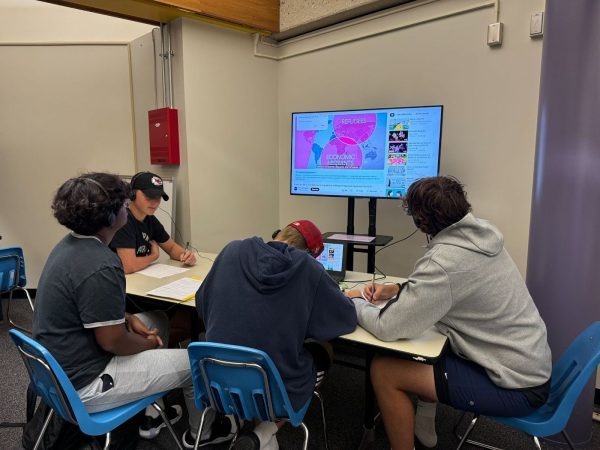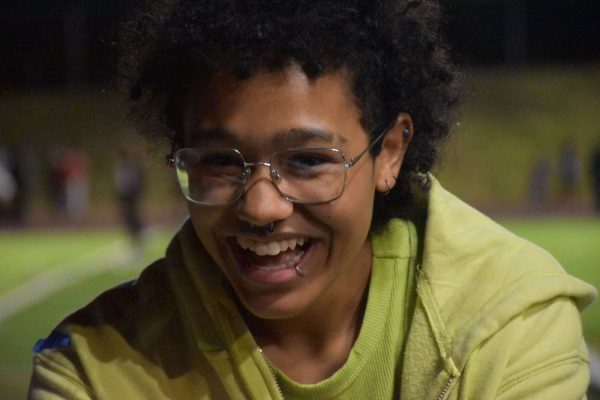Seniors discuss getting mental health help
As graduation approaches, seniors consider their options after high school. Graduating comes with its own worries and difficulties, but those who may be gearing up for life changing college decisions may be facing more struggles than students planned for and need to consider mental health options as well.
“I’m getting ready to move to Chicago for college, and I’m filling out apartment stuff and loans and all kinds of things that I never really imagined doing,” said senior Olivia Epstein.
According to the CDC, more than one in three high school students had experienced persistent feelings of sadness or hopelessness in 2019, a 40% increase since 2009. The end of high school can be an incredibly emotionally taxing time for seniors with mental health issues and these students may be feeling more taxed than before.
“It’s a lot of change at one time. I’m worried about missing my friends and family, if I’m making the right decision, if I’ll be in the right place and even if I am going to succeed in college on my own. It’s all really new and it’s a lot to handle,” said Epstein.
Senior celebrations and activities like prom, the senior walk and the senior bash are all meant to bring the class together and as well as celebrate their accomplishments. It is used to celebrate their remaining time together too. These celebrations are overall happy experiences but can bring out a lot of emotions in students.
“I’m absolutely going to cry at the senior walk. I think we are all processing a lot of emotions depending on all of our individual situations, but saying goodbye to my favorite teachers and underclassmen is going to be really hard. That’s something that I completely forgot was going to happen,” said Epstein.
These senior celebrations are something that some members of the class of 2022 have not seen before due to the global pandemic. The last two graduating classes did not get these events to share with their classmates.
“I think it’s really important to go to every event to spend time with each other while we can, especially because other grades didn’t get most of the opportunities that I do, so I am really appreciative of it,” said Epstein.
While the end of the year is an exciting time for seniors, the end of high school comes with stresses that have life lasting effects, which is taking a toll on some students.
“These last couple of weeks have honestly been different than any other time I’ve been in high school. Mentally, I am not here at all so getting work done has been nearly impossible,” said senior Samantha DeMichieli.
The Oxford Languages dictionary describes “senioritis” as a supposed affliction of students in their final year of high school, characterized by a decline in motivation or performance. As college decisions are made, completing high school seems to become a benign expectation and the lack of motivation causes mental health difficulties.
“I think everybody is just ready to be done. We are all in such a weird place of becoming grown-ups and just getting over being high schoolers. When I show up to class, my work typically is the last thing on my mind. The assignments towards the end of the year have been taking way more out of me than usual, and it’s an extra level of stress that I never planned on experiencing,” said Demichieli.
An aspect that some students may be worried about is what mental health resources are available after graduation.
“The dynamic changes so much from high school to college.I’m worried that I won’t know where to go or who to talk to once I’m in college. I’m going from being surrounded by adults all day long to being considered one and it’s a lot,” said senior Dorian Washington.
The general hope is that all students, despite what their post-graduation plans are, receive proper mental health no matter where they go and that they know how to reach out for it.
“My advice would just be to plan for it and talk to your peers and the adults in your life. If there is something that you haven’t done or been through before, you probably know someone who has and can help you,” said Washington.

My name is Vivian, I am a senior and this is my third year doing newspaper. I am so excited to be back working with everybody in person!





![There are many AI sites and apps available. “You don't [stop students from using AI] - you teach them how to use it,” social studies teacher Melody Barger said.](https://pnhnorsestar.com/wp-content/uploads/2025/01/AI-600x400.jpg)





